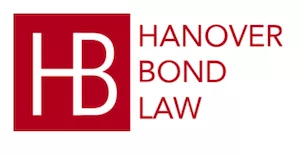Inheriting property or other assets situated in Italy
We often come across situations where a person that is based outside of Italy inherits assets located in Italy.
The situation typically arises when an Italian national settles abroad. Italy has historically had one of the highest rates of home ownership in the world. Italians tend to hold on to property and are very family orientated and it is very common for Italians to bestow property upon their descendants when they die.
When this person dies his or her estate are likely to comprise of assets, often real estate but also bank accounts etc., that are located in Italy. The default rule under the EU Succession Regulation (Brussels IV) is that the law of succession (not tax law) that will apply to the one person's estate as a whole is the law of that person's habitual residence at the time of his death. This is subject to two exceptions, namely that the deceased was "manifestly more closely connected with another country" or that the deceased had chosen in his Will for the law of his nationality to apply. Such choice can be made explicitly or implicitly by making the Will in accordance with the law of his nationality.
When probate proceedings get underway in the country of residence of the deceased, for example an Italian national who resided habitually in the United Kingdom, the issue arises of what to do about the Italian assets that are comprised in the estate.
We often get asked this question by the professional in the UK, Germany or Spain who is overseeing a probate that includes assets situated in Italy.
The answer is that, whenever there are assets in Italy, certain steps must be undertaken there in order for the assets to be transferred to the heirs.
Another situation that we regularly come across is that of a probate that is opened in Italy and whose beneficiaries include people that are based outside of Italy. These people would either have been expressly named in the Will of the Italian deceased (the"testamento"), or they would be a designated heir in accordance with the Italian rules of intestacy.
We note in this regard that the Italian rules of intestacy allow relatives up to the sixth degree of blood relationship to inherit from an Italian national. For example, one can inherit from an Italian second cousin and even from the child of an Italian first cousin once removed.
Furthermore, as is often the case with civil law systems, Italian law provides for forced heirship which is alien to Anglo-Saxon law. This can lead to complex situations where different assets that are included in the succession are subject to English and Italian law and there are heirs who are subject to different regimes. Often these situations lead to legal disputes amongst heirs.
Clients usually contact us after having been approached by an Italian notary public in relation to a will in which they are named as heir. In those circumstances, the first thing that we do is to explain to our client how the Italian rules around the acceptance of an inheritance differ from those in the heir's home jurisdiction.
The main peculiarity of the Italian rules is that, by accepting the inheritance (which can be made up of real estate, chattels or choses in action), the heir also accepts by default all liabilities that go with his share of the inheritance.
This is different from the inheriting in the UK where tax liabilities etc. are dealt with as part of the probate process at the end of which the heir gets paid a sum of money or is given specific chattels net of any liability.
Once our clients are appraised of this key difference, they often pause before proceeding with the acceptance of the Italian inheritance. They typically try to ascertain the value of the estate and aks us to check if there are unpaid taxes or other liabilities associated with the assets that form part of the estate.
We note in this regard the Italian government levies high taxes on the ownership of real estate that is not used as main residence.
By way of example (or cautionary tale, rather!), a client of hours partly inherited a flat in Southern Italy worth in the region ?80,000 that had accrued liabilities of more of ?10,000 on account of unpaid tax and service charges. Also, the flat was in a condition of serious disrepair. By becoming the co-owner of the property our client would have instantly become jointly and severally liable for damages suffered by third parties in connection with any problem with the building. The Italian co-heirs (some distant relatives that our client never met) proved difficult to engage with whent it came to discussing building insurance and other costs of the property going forward. Furthermore, our client was looking at paying 8% Italian Inheritance Tax on the value of his share of the property. In the end, we negotiated with the co-heirs an agreement whereby our client got cashed out by them in exchange for his renunciation to the inheritance.
We are often retained by people that were contacted by a "heir hunter" who got wind of an unclaimed inheritance in Italy and worked out that our client is an heir under the Italian intestacy rules.
In these situations, we assist the client with the preparation and filing of the "dichiarazione di successione" (literally a declaration of succession). This needs to be done within one year of the death.
The application must specify all the assets of the deceased and the following documents need to be enclosed to it:
- The deceased's death certificate;
- a "certificato di famiglia" (literally "family certificate") relating to the deceased. This document can be obtained at local authority where the deceased resided at the time of death;
- a certificato di famiglia (or equivalent foreign document) relating to each of the heirs
- a copy of the will (if any) complete with an Italian translation.
Where the asset to be inherited is a piece of real estate, within 30 days from the submission of the dichiarazione di successione an application for "voltura catastale" must be submitted with the local office of the Italian Inland Revenue (Agenzia delle Entrate - Ufficio Territorio).
If the asset to be inherited comprises only of a bank account the balance of which is less than ?120,000 there is no need for the dichiarazione di successione. All that is required is an "atto notorio" namely an affidavit that states that the individual in question is the lawful heir by virtue of a will or under the intestacy rules. If the bank account has a balance of more than ?120,000 or if real estate is part of the estate the dichiarazione di successione is always necessary.
Cross border inheritance also throws up complex tax issues. UK Inheritance Tax or IHT is due if the deceased was 'domiciled' (permanently resident for tax purposes) in the UK or if the person left assets that are located in the UK, for example real estate or a bank account.
Similar rules apply in other countries (e.g. in Italy as we mentioned above).
Where there are assets in multiple jurisdictions tax liabilities can arise simultaneously in more than one of such jurisdictions. Think for example of a person who inherits from a UK domiciled person who had a bank account in Italy. Must tax be paid in Italy or in the UK?
The answer is not necessarily straightforward, also because in the UK it is the estate (namely the deceased, in a way) that pays IHT whereas in Italy it is the heir who has the tax obligation.
Luckily there are bilateral treaties between countries that help avoiding double taxation. These treaties (usually based on the OECD model double taxation treaty) typically make allowances for the country in which the deceased was domiciled to tax all worldwide property and for the other country only to tax certain types of assets such as immovable property (e.g. real estate) located in that country. If tax is paid abroad, for example tax is paid in Italy in connection with money standing to the credit of an Italian bank account of a UK-domiciled individual, UK IHT will be levied but HMRC will (within certain limits) give credit for the money already paid in Italy on account of tax so that tax does not get paid twice.
The content of this article is intended to provide a general guide to the subject matter. Specialist advice should be sought about your specific circumstances.

